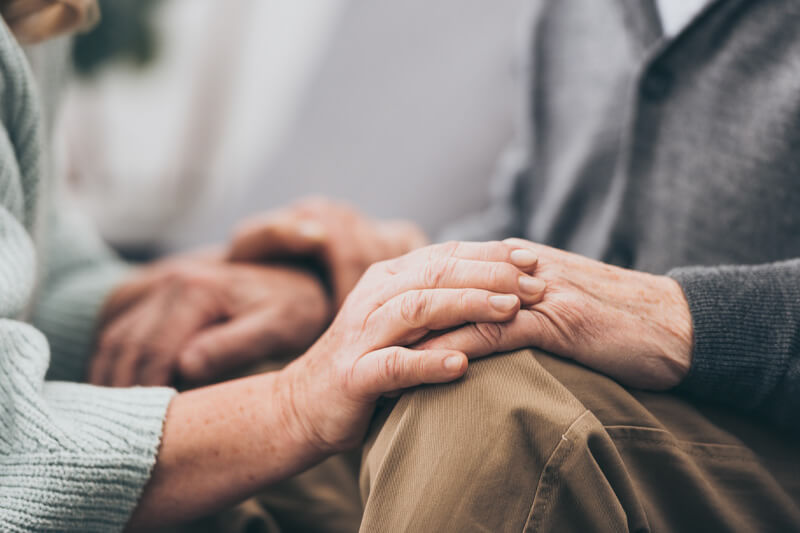The elderly have many good reasons to get vaccinated
22.09.2023
The elderly should get vaccinated to decrease the risk of serious illnesses and reduced functional capacity. By keeping their vaccination coverage up to date, elderly people can lead a full life.
“Getting vaccinated is important for the elderly, because ageing weakens the immune system and resistance to disease, which increases susceptibility to illness. Infectious diseases have more serious consequences on the elderly than on younger age groups,” says Eija Lönnroos, Professor of Geriatrics at the University of Eastern Finland.
Vaccinations prevent the onset of serious diseases and reduce the risk of premature death. When illnesses and the ensuing reduction in functional capacity are avoided, elderly people can better invest in maintaining their quality of life.
“The elderly are not usually afraid of vaccinations. Many of them still remember the times when the diseases that can now be prevented with vaccinations were widespread. If you have seen the harm caused by measles and other childhood diseases, for example, vaccinations are seen as a good thing,” says Lönnroos.
What vaccinations should the elderly take?
In Finland, vaccine-induced immunity is achieved through basic vaccinations administered at child health clinics under the national vaccination programme. These basic vaccinations are supplemented by booster vaccinations. People aged over 65 should take a free diphtheria and tetanus vaccination. This is a booster vaccination repeated every ten years for people who have turned 65. People aged over 65 should also take a free annual influenza vaccination. Certain risk groups, such as those with severe kidney disease or severe immunodeficiency under 75 years of age, those with chronic obstructive pulmonary disease or asthma aged 65–84 years, or those who have received a stem cell transplant, are also given a free pneumococcal vaccine.
Vaccination against pneumococcal infections is recommended
A severe pneumococcal infection can cause pneumonia and sepsis, for example.
“The Finnish Institute for Health and Welfare recommends that people who, due to their illness or medication, are at particularly great risk of a severe pneumococcal infection should take a self-paid pneumococcal vaccination,” says Lönnroos.
“Everyone aged over 75 benefits from getting a pneumococcal vaccination, but it is not yet given free of charge to all elderly people in Finland's national vaccination program. Here in Kuopio, for example, the city administration has sent a letter to all residents aged over 50, stating that it would be good to take a pneumococcal vaccination.”
A booster dose of the corona vaccine is recommended
The Finnish Institute for Health and Welfare (THL) recommends giving a booster dose of the corona vaccine in the autumn-winter of 2023 to those aged 65 and over. The vaccine can be given at the same time as the influenza vaccine. When the corona vaccinations started, the vaccines were first given to those with severe immunodeficiency, then to those over 70 years of age, then to those aged 18−69 who belonged to risk groups and finally to those aged 60−69 who did not belong to risk groups.
Self-paid shingles vaccination
Everyone who has had chickenpox is at risk of getting shingles. Chickenpox is caused by the varicella zoster virus, which remains in the body, and if your resistance to infection decreases, the virus may reactivate and cause a painful skin eruption with blisters on the body or the face. The acute stage is painful, and the pain can become chronic and substantially reduce quality of life. The chronic pain can last for months or even years.
“There are vaccines for a fee for preventing shingles. The newest shingles vaccine available in Finland is effective and safe also for the elderly, but its high price is a drawback,” says Lönnroos.
Impact of illness on vaccines
Vaccinations are even more important if an elderly person has a serious underlying medical condition. Such a medical condition is seldom an obstacle to getting vaccinated.
“In the case of a forthcoming organ transplant or start of cancer treatment, the patient should discuss with their doctor the best time for getting vaccinated. For example, it may be necessary to get vaccinated before starting treatment.”
Other considerations
Vaccination clinics have expertise in vaccines and their possible side-effects.
“Some people may experience soreness at the injection site, but most people do not experience any side-effects, and any minor side-effects are experienced by only a small proportion of people. It is important to mention any previous allergic reactions beforehand to the person administering the vaccine,” Lönnroos says.
People in assisted living facilities can be vaccinated at home, and home nursing services administer vaccines both at home and in nursing homes. The care facility usually organises vaccinations in a centralised manner, but elderly people themselves or their close relatives can enquire when and where vaccines will be administered. Seasonal vaccinations such as the influenza vaccination are also recommended.
“Nowadays, the elderly also travel a lot. They should find out what vaccinations are required for their destination. For example, a hepatitis A vaccination is necessary for many countries,” Lönnroos points out.
Text: Leena Koskenlaakso
Published 14.10.2022, updated 22.9.2023
